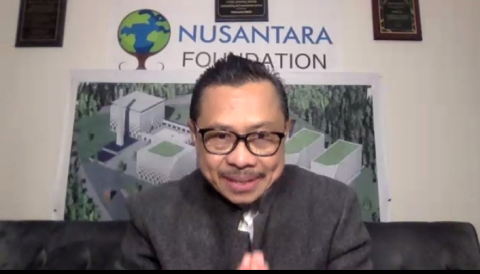Writer: Dr. M. Imam Syamsi Ali, Lc, M.A | Director of Jamaica Muslim Center, President of Nusantara Foundation
RADARINDONESIANEWS.COM, JAKARTA – Every fourth Thursday of November in the US is celebrated as Thanksgiving Day. It is a significant occasion and one of the biggest national holidays. For many Americans, it is a day for family gatherings to express gratitude to one another. People often travel great distances to reunite with their loved ones.
From a historical perspective, however, Thanksgiving Day may not be entirely desirable to celebrate. It originated when European settlers arrived in what would later become America and celebrated their dominance over the Native Americans, known as Indian Americans.
Because of this, the celebration is not universally embraced, particularly by non-white Americans. Some African Americans and Native Americans choose not to observe Thanksgiving. Instead, they commemorate their own occasions, such as “Native American Day.”
Islam’s Perspective on Thanksgiving
Despite its historical background, Thanksgiving has been widely accepted and celebrated, becoming an integral part of American culture. Many traditions and practices, though historically undesirable, have evolved over time into cherished cultural milestones. Often, they are no longer directly connected to their original historical context.
In this light, Islam evaluates such practices based on their essence and meaning, rather than their historical origins. When considering cultural traditions, Islam emphasizes principles and values over historical details.
Thanksgiving, as an American cultural practice, has been celebrated for generations and is not tied to any specific faith or creed. For Muslims, as part of this diverse society, it can be embraced as a cultural practice. However, Islam encourages its followers to align all their actions with its principles and values.
From this perspective, Muslims approach Thanksgiving by defining it within the framework of Islamic teachings. While the outward practice may resemble that of others, the intention and principles underlying it are distinct.
In Islam, the concept of gratitude is deeply rooted and expressed through the terms shukr (Arabic) and tashakkur (Persian), both derived from the root shakara, meaning to thank, appreciate, and be grateful. Gratitude is a fundamental principle in Islam, emphasized in many verses of the Quran and sayings of the Prophet Muhammad (peace be upon him).
Allah says: “Be thankful to Me, and do not be ungrateful.”
He also says: “If you are grateful, I will surely increase you [in favor]; but if you deny, indeed, My punishment is severe.”
What to Be Grateful For
There are countless blessings in life to be grateful for, but they can be summarized into three key areas:
Our Creation as Humans
Human beings are the most perfect creation of Allah. The Quran describes this as: “We have certainly created man in the best of stature.”
Additionally, Allah has granted human beings dignity, as He says: “Indeed, We have honored the children of Adam.”
Guidance (Al-Hidayah)
Guidance from Allah enables us to recognize Him as our Creator and to understand our responsibilities in this life. It provides us with a clear orientation: we are here to worship Allah and prepare for our return to Him. This clarity is a priceless blessing that deserves constant gratitude.
The Ummah
The term Ummah means “community,” and it can refer to multiple levels of belonging.
The Global Ummah: This includes all those who believe in laa ilaaha illa Allah wa Muhammad Rasulullah. Muslims across the globe are united in this shared faith.
The Local Ummah: This can refer to specific national or ethnic Muslim communities. For instance, American Muslims form an Ummah within the broader global Ummah.
As an Ummah in America, we have much to be grateful for. Despite its shortcomings, America remains a land of hope and opportunity, offering not only material benefits such as education and economic advancement but also the freedom to practice our faith. Compared to many other nations, including some in Europe, the United States provides a unique environment where religious freedom is upheld.
Who to Be Grateful To
Islam commands gratitude to all those who show kindness, even those who do not share the same faith. This includes our parents, even if they do not believe in Islam.
Gratitude to Allah
Our first and foremost gratitude is to Allah, our Creator, who fulfills our needs (though not always our desires). The most meaningful way to thank Allah is through sincere worship, acknowledging Him as the sole deity.
Gratitude to Parents
Allah commands us in the Quran:
“Thank Me and your parents.”
Parents play an unparalleled role in our lives, and Islam emphasizes their rights and the importance of showing gratitude to them.
Gratitude to Fellow Humans
The Prophet Muhammad (peace be upon him) said:
“A person who does not thank others has not thanked Allah.”
This includes showing appreciation to those who serve and support us, including our spouses. Often, we overlook the sacrifices our spouses make for us. Apart from our parents, no one loves us more in this world than our spouse. Recognizing this and expressing gratitude to one another strengthens the bond of marriage.
Conclusion
As Muslims, Thanksgiving offers an opportunity to reflect on and practice gratitude—not just as a cultural tradition but as a deeply spiritual act. By aligning the practice with Islamic values, we can celebrate gratitude in a way that enriches our faith and strengthens our connections with others.[]










Comment